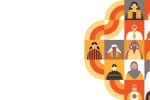
Stories in motion
In our inaugural Building Trust Awards held in 2015, we acknowledged 10 local public-listed companies for their efforts in building trust with their customers and investors.
Here are examples and stories from some of the CEOs of those companies.


Sometimes tough feedback makes a difference
Malek Ali, Founder and Managing Director of BFM Media, is a firm believer of trust as a competitive differentiator. For him, corporate culture, while complex and often hard to manage, can also be a key asset to a company. It helps people to be vested in their work, which translates into meaningful outcomes for the company and the stakeholders they serve.
At BFM, building a values-based culture has become an essential part of the management agenda (in fact, only 30% of an individual’s performance evaluation is based on their competencies; the rest is based on cultural components). They emphasise integrity, authenticity and transparency, values closely linked to trust. These themes are reflected in the way they communicate with their employees through townhalls and meetings for instance, as well as how they empower their employees to take responsibility for their growth and that of the company’s.
They quantify how their employees are emulating the company’s values through their peer assessment process (giving employees the opportunity to provide feedback on the people they work with). Employees are asked to assess how their peers perform in the area of integrity, whether they lead by example, and whether the individual ‘is a positive addition to the BFM culture’. Essentially, he sees this as a way for employees to hold a mirror up to themselves and to their peers.
While some of the questions in the assessment may appear as ‘touchy-feely’, they provide management with a way to ‘nip certain things in the bud’ like behaviours that may be counterproductive to the company culture.

Driving a consistent culture across the organisation
Recognising that every person within the organisation can both build and destroy trust, how do CEOs go about ensuring a consistent culture across? Datuk Shahril Ridza, Chief Executive Officer of EPF, gives his take.
EPF’s core values are customer service, teamwork, innovation and integrity. Datuk Shahril explains, “Integrity is not just about being honest in your work, it’s about delivering on your promise.” That promise, for EPF, is all about customer service. With the Board and senior management fully behind this, Datuk Shahril set about to ensure this was embraced consistently across EPF’s many branches throughout Malaysia. It was a journey that lasted several years and involved:
Investing in technology - While EPF was trying to change their people’s mindset around customer service and delivery, they recognised that they would have to provide the tools to help their people get there. By ensuring the appropriate technologies were in place, their staff were able to keep to their customer SLAs (service level agreements) and deliver services efficiently.
Tackling the people element - To create an atmosphere of healthy competition, EPF employed transparency and utilised data. They ranked their branches against key metrics such as customer waiting time and customer happiness and made these rankings completely transparent. Their staff were motivated to compete against each other to improve upon their deliverables, to the benefit of customers.
Decentralising and empowering – The EPF has a goal to sign up 1.5 million new online account users this year. They have provided their branches with basic guidelines but have let each branch work out their own strategies to achieve this. Each month, a report is published to show how the branches are faring. It drives their staff to keep up but more importantly promotes learning and collaboration as those who are lagging, learn from the examples of those who are ahead.

Banking on trust for success
Malayan Banking Berhad (Maybank), the winner of our Building Trust Awards 2015, believes strongly in their mission 'Humanising financial services'.
Maybank Group Head of Global Banking, Dato' Feisal Zahir, shared the story behind their mission, which was put in place by the company’s previous CEO, Dato’ Sri Abdul Wahid Omar, “Maybank was already a leader then but they realised that their growth was slowing. So it was at a management retreat where they said if we were to take away the fact that we’re a bank, what is it that each one of you wants to achieve?”
The answer: to help others.
Dato’ Feisal believes that trust will naturally develop when a business knows what it stands for, and focuses on achieving it. He cited the example of their Etiqa Takaful Berhad (Etiqa) team, who came across a motor accident during one of their daily newspaper monitoring exercises.
“Our team read the story, which included the victim’s full name. They did a check and found he was covered under Etiqa,” said Dato’ Feisal.
The Etiqa team started the necessary paperwork even before the victim's family submitted a claim and was able to present his family with a settlement cheque the following week. Dato’ Feisal added, “So here we have the team members staying true to our brand promise, acting in an authentic and consistent manner, and our trust with this customer and his family naturally increases tenfold."
When asked how frequently the topic of trust-building features in Board and management discussions, Dato’ Feisal says it does frequently, albeit indirectly. “When we’re discussing issues such as whether we can easily charge a premium for a product (because of our prime position in the market), we’ll discuss at management level whether this is the right thing to do,” said Dato’ Feisal. “Does it honour our mission? Probably not, so we won’t do it.”

‘Creating Shared Value’, an environment for trust to thrive
Nestlé’s slogan is “Good food. Good life” – certainly, setting the bar for their products which touch hundreds of thousands of people’s lives each day.
“We would not have survived 150 years unless we had the trust of all our consumers and stakeholders,” says Alois Hofbauer, Managing Director of Nestlé (Malaysia) Berhad in referring to Nestlé’s history which dates back to 1866. Their founder, Henri Nestlé created one of the first infant foods to meet the need for a healthy and affordable alternative for mothers who could not breastfeed their babies.
With origins steeped in such a noble cause, Nestlé has a strong legacy to live up to. To continue to retain that trust, Nestlé believes they have to become an integrated part of community and society, which is what drives their Creating Shared Value-belief. So just how integrated is Nestlé in the Malaysian community?
Take the example of their MAGGI® Chilli Sauce. MAGGI® sources part of its fresh chilli supply from local farmers in Kelantan as part of the Nestlé Chilli Club (NCC) contract farming scheme. The NCC helps provide rural farmers with a sustainable source of income by educating them on agricultural best practices to grow quality raw materials. Nestlé, in turn, offers a fair market price for their produce, so these farmers become part of Nestle’s supply chain.
But how does Nestlé align all of its people, so that everyone is on the same page when it comes to building trust? Alois explains that it’s all about encouraging and empowering them to embrace the shared value culture. Each year, employees are given two days of paid leave to undertake volunteer/charity work outside the company. Management found that this leads to a competitive advantage, as they get staff that share the same values as the company.
Contact us

Building Trust Programme Sponsor & Assurance Partner, PwC Malaysia
Tel: +60 (3) 2173 0946
















